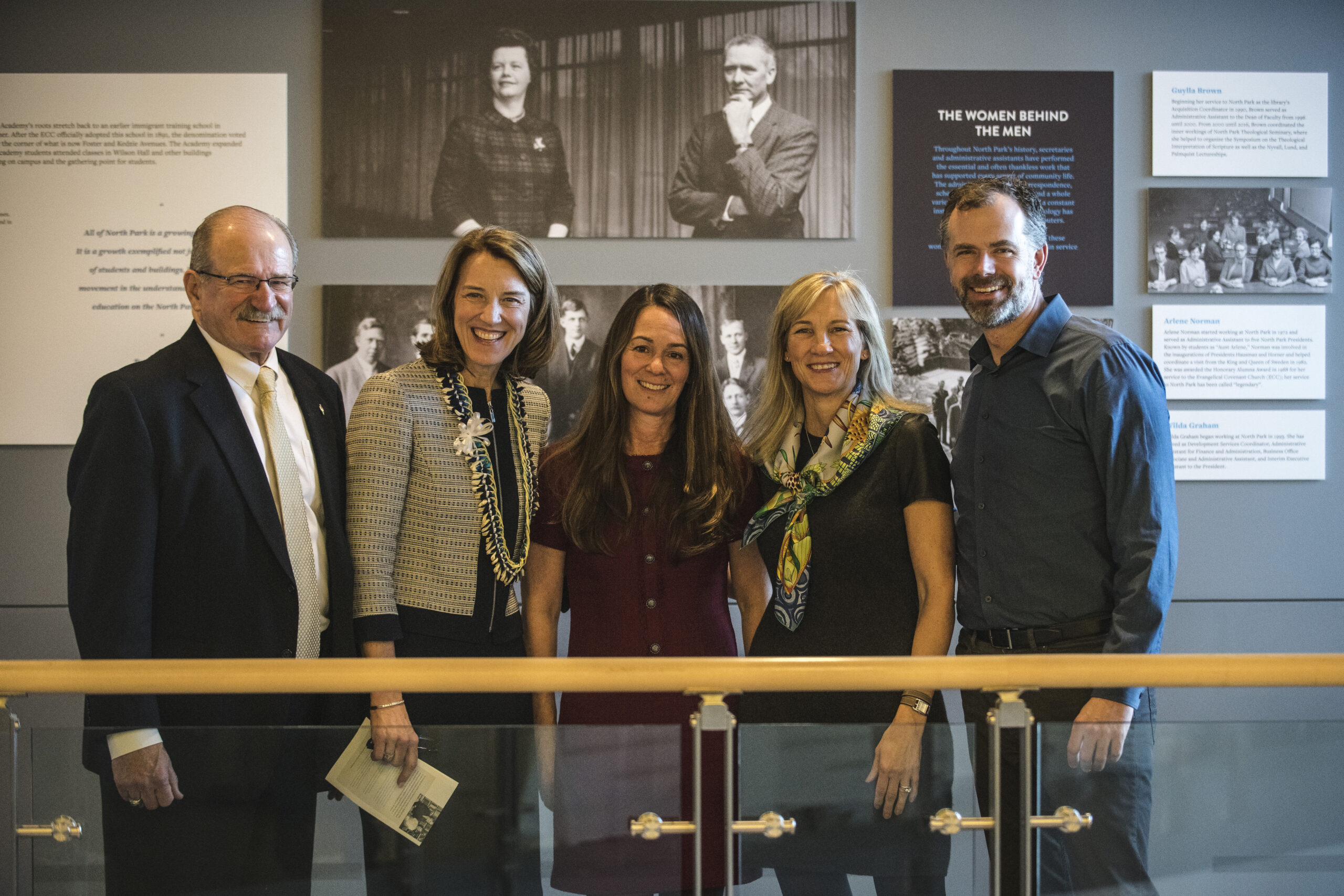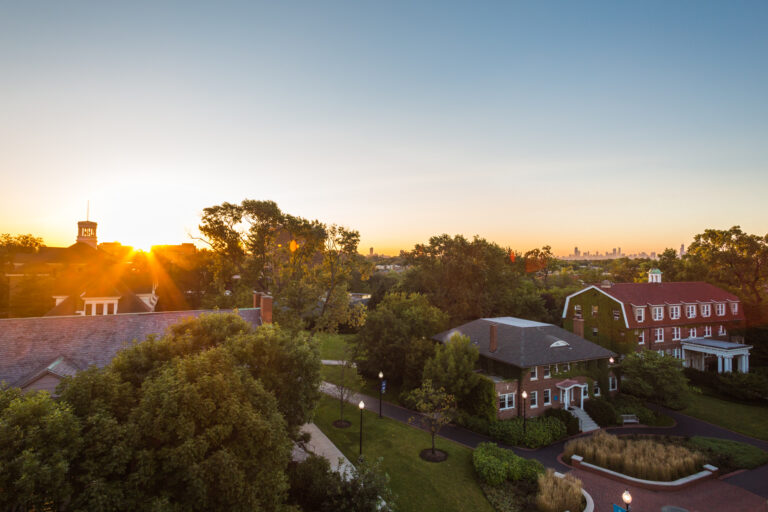
North ParkÔÇÖs history is filled with women who provided spiritual, educational, and service-oriented leadership through the years. In honor of the inauguration of Mary Karsten Surridge, the UniversityÔÇÖs first female President, North Park Director of Archives Andrew Meyer curated the exhibit Women of North Park, currently on display in the Johnson Center.
ÔÇťIn creating this exhibit, my hope was not merely to highlight ways in which women have served and led North Park, but also to let these stories guide and inspire the North Park community to continue to work toward GodÔÇÖs glory and neighborÔÇÖs good,ÔÇŁ Meyer said in an introduction to the exhibit.
The exhibit highlights some of the women who have led and served the North Park community for over 125 years. Through the work and dedication of these women, North Park has grown from a humble, immigrant institution to a cosmopolitan university. North ParkÔÇÖs vision is ÔÇťto fashion a university of uncommon character and enduring excellence, where faith, learning, and service meet.ÔÇŁ
Meet Some of the Women of North Park
LENA SAHLSTROM
When Lena Sahlstrom accepted David NyvallÔÇÖs invitation to teach at ║┌┴¤│ď╣¤ in 1894, she became the schoolÔÇÖs first female faculty member. She actually began teaching Swedish immigrants at the school in 1888, before North Park got its name and a new home in Chicago. Sahlstrom assumed many duties in the schoolÔÇÖs early days, including teaching piano and serving as Dean of Women.
HELEN SOHLBERG
Helen Sohlberg joined North Park in 1919 as a history teacher in the Junior College and Academy. In 1921, she succeeded Sahlstrom as Dean of Women and continued in both roles until her retirement in 1951. In her role as Dean, Sohlberg managed Caroline Hall, the first residence hall for junior college women, where she cared for her students through daily meetings and bi-weekly ÔÇťfireside chats.ÔÇŁ Known for her sharp intellect and keen sense of humor, North Park honored her by building a new residence hall in 1952 and naming it Sohlberg Hall.
MARIA NILSDOTTER
Maria Nilsdotter was a poor widow raising six children on her own when a religious reawakening in 1846 called her to put her faith into action, caring for poor and neglected children in her community of Vall, Sweden. These efforts eventually evolved into an orphanage and school and she became known as ÔÇťMor i VallÔÇŁ or ÔÇťMother in Vall.ÔÇŁ MariaÔÇÖs son, Carl Johan, was instrumental in the formation of the Mission Covenant Church of Sweden and the Evangelical Covenant Church. Her grandson, David Nyvall, was North ParkÔÇÖs first President.


